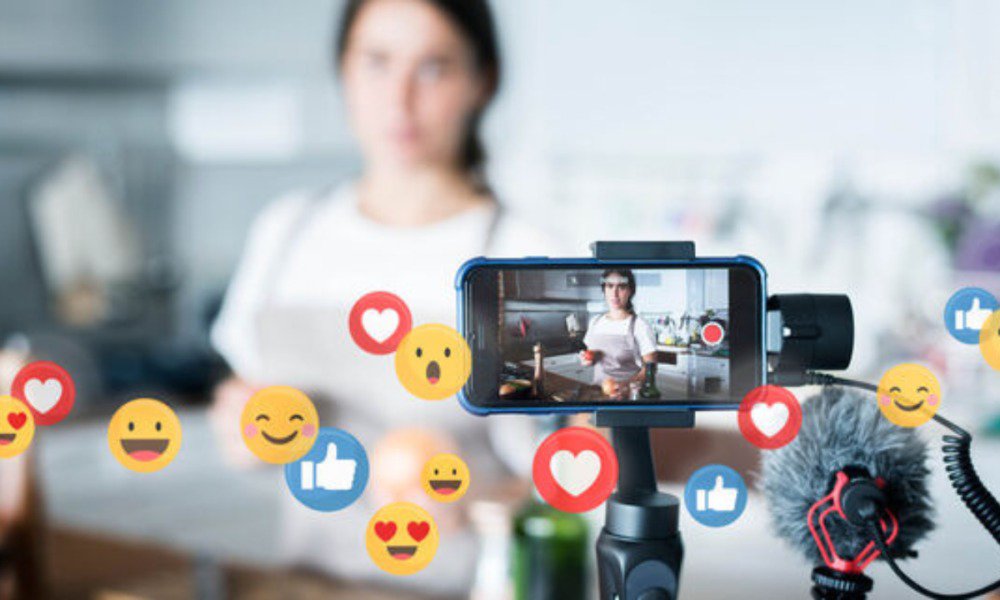In today’s digital age, social media has become a powerful force that shapes our lives, influences our opinions, and changes the way we connect with others. One of the most significant areas impacted by social media is celebrity culture. Platforms like Instagram, Twitter, TikTok, and Facebook have changed the way we view, interact with, and understand celebrities. This blog explores the different ways social media influences celebrity culture, from encouraging direct communication between stars and fans to changing the definition of fame itself.
1. Connecting Directly with Fans
Before the rise of social media, celebrities relied on traditional media—like magazines, television interviews, and public appearances—to communicate with their fans. This often created a barrier between stars and the public. However, social media has bridged this gap, allowing celebrities to connect directly with their followers. They can share snippets of their daily lives, thoughts, and projects in real time.
For example, many celebrities post behind-the-scenes glimpses, personal stories, and even candid moments on platforms like Instagram. This transparency makes fans feel closer to their favorite stars. It allows for a more personal connection and makes fans feel like they are part of the celebrity’s life. In turn, this accessibility often increases fan loyalty and engagement.

2. Instant Feedback and Interaction
Social media provides a platform for instant feedback, which can be both encouraging and challenging for celebrities. They can gauge public reaction to their projects, appearances, or even personal decisions almost instantly. For example, when a celebrity releases a new song or movie, they can see fans’ reactions and reviews in real time through comments and likes.
This instant interaction also allows celebrities to engage with their audience. Many stars take the time to respond to comments or even participate in live Q&A sessions. Such engagement helps humanize celebrities and show that they care about their fans’ opinions and feelings. However, this can also create challenges, as celebrities face criticism for missteps or controversial statements that was not previously as immediate or public.
3. The rise of influencer culture
Social media has also blurred the lines between traditional celebrity culture and influencer culture. Today, anyone with a smartphone and a compelling story can gain a sizable following. Influencers—individuals who build their fame through social media—can sometimes outshine traditional celebrities.
This shift has led to a democratization of fame. For example, a beauty vlogger can gain millions of followers, making them just as influential as a Hollywood actor. Brands often turn to influencers for marketing campaigns because of their ability to connect with niche audiences in an authentic way. As a result, we are seeing a new breed of celebrity emerge that does not rely on traditional routes to fame, but instead creates it through social media.

4. Changing standards of fame
In the past, achieving celebrity status often required a lot of talent, hard work, and connections within the industry. Social media, however, has changed these standards. Today, virality can lead to instant fame, regardless of talent. A funny meme, a viral dance challenge, or a well-timed tweet can make someone a star overnight.
While this shift has allowed diverse voices and talents to gain recognition, it has also led to a culture where fame is often fleeting. Today’s internet sensations can be forgotten as quickly as they appeared. This transience puts pressure on people to constantly produce content to maintain their status, leading to a culture of hustle that is both exhausting and unsustainable.
5. Impact on mental health
The constant scrutiny and feedback from social media can have a profound impact on a celebrity’s mental health. While some benefit from the attention and engagement, others can find it overwhelming. The pressure to maintain an image, stay relevant and constantly engage can lead to anxiety, depression and burnout.
Many celebrities have spoken openly about their mental health struggles and shed light on the dark side of fame. This has sparked important conversations about the need for self-care and mental wellbeing, not only among celebrities but also among their fans. Acknowledging these issues has the potential to humanize stars and remind fans that they too face challenges.

6. Impact on trends and culture
Celebrities often set trends in fashion, beauty and lifestyle. With the rise of social media, these trends can spread faster than ever before. When a celebrity shares a new look or product on their Instagram, it can become a viral sensation within hours. This rapid influence shapes consumer behavior, leading fans to seek out the products and styles their favorite stars support.
Social media also allows for a more diverse representation of culture. Many celebrities use their platforms to advocate for social causes, raise awareness, and create positive change. By leveraging their reach, they can mobilize their followers around important issues, from climate change to social justice. This ability to influence culture and society shows the power that modern celebrities wield in our world today.
7. The Role of Authenticity
As audiences become more savvy and sophisticated, authenticity has become a key factor in how fans connect with celebrities. In an age where images can be manipulated through editing and filters, fans crave realness. Many stars have embraced this change by sharing unfiltered moments, struggles, and vulnerabilities.
This authenticity fosters deeper connections with fans, as people appreciate when celebrities speak honestly about their lives, imperfections, and challenges. Celebrities who are open about their mental health struggles or body image issues, for example, often find a strong support network among their followers. This transparency not only creates a sense of community, but also encourages discussions about important issues that affect many people.
Conclusion
Social media has undeniably changed celebrity culture in countless ways. From fostering direct connections with fans to redefining what it means to be famous, its impact is profound. While celebrity accessibility can increase fan engagement and create new opportunities for diverse voices, it also brings challenges around mental health and the pressure to stay relevant.
As social media continues to evolve, the dynamics of celebrity culture will also evolve. It’s important that both celebrities and fans explore this landscape with a balanced perspective, embracing the positives while being aware of the challenges. Ultimately, in a world where anyone can be a star, the real winners are those who stay true to themselves and use their platforms to encourage others.




No Comment! Be the first one.